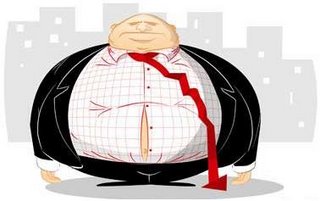With sterling trading near levels not seen in 16 months against the dollar, investors are beginning to fret about a foreign-exchange trend they fear may spell an unhappy end to the growth story for U.K. shares.
The U.K. currency briefly touched $1.90 in May and had held around that level for around the last month. Compare that with five years back: sterling hit a low of around $1.3678 against the dollar in June 2001, and has staged a steady recovery since.
If this strengthening trend continues, it could significantly impact revenues at some of Britain's biggest and best-known companies. And it would threaten to undermine the M&A story that's been helping to drive U.K. equities since 2003.
"In the case of the U.K., there is a significantly large proportion of companies in the benchmark FTSE 100 index whose receipts are denominated in dollars -- when (those dollars are) converted back into sterling (for instance to pay costs or dividends), they'll have less sterling receipts to show for it," said Mike Lenhoff, chief equity strategist at London-based stockbrokers Brewin Dolphin Securities.
Robert Parkes, a U.K. equity strategist at HSBC Bank, said that around 25% of sales from U.K. companies are into the U.S, which, when coupled with the high dollar exposure of the commodity sector, brings the total dollar exposure of the FTSE to between 35% and 40%..
Feeling the pinch
Central banks and interest rates have largely been behind the currency moves.
"Interest rates are the dominant driver in the (currency) markets at the moment," said Geoff Kendrick, a senior currency strategist at Australia's Westpac Bank.
"The key in the short term is whether or not the Federal Reserve is really finished (tightening rates) now, or whether they'll need to tighten again," Kendrick says.
The U.S. rate now stands at 5.25%, while in the U.K. it's 4.75%.
The Bank of England surprised investors with a rate hike in early August of a quarter percentage point, which sent sterling spiking upward. The central bank said the pace of economic activity had quickened, with higher energy prices sparking greater inflationary pressures.
If the Bank of England tightens rates again, it raises the possibility sterling could strengthen towards the magic $2 mark. That's when the impact would really kick in, experts say.
"If you're aiming for a target like $2 in cable (as the cross rate is known), you'll probably need the Federal Reserve to stop (raising rates), the market to think about current account balances and the Bank of England to hike again. Then you may start getting close," said Kendrick.
The pound at $2 could undermine the export position of many U.K. companies, which earn revenues in dollars that would be subject to a negative translation effect. And it could knock about 1% off earnings for U.K. companies, said Richard Batty, investment director at Standard Life Investments.
HSBC's Parkes said of all the companies in the U.K. stock market, pharmaceuticals record the most sales in the U.S market at about 44%. Following close behind are aerospace, with 41% sales exposure, and general industrials, with 37% of sales in the U.S.
How much movement's ahead?
However, a move to $2 probably isn't coming anytime soon: the consensus twelve-month view on dollar/sterling is for a level of $1.8734, according to FX Week.
Dresdner Kleinwort heads up that list, forecasting $2 in twelve months, while Westpac expects the dollar to hit $1.97 and HSBC sees it at $1.86. HBOS Treasury Services has the lowest forecast, with a twelve-month view of $1.68.
And even if the cross rate reached $2, the move would have to be sudden and sharp to have a significant detrimental effect, Lenhoff said.
"The trigger would be if the market is convinced that the Fed has stopped tightening, and not only stopped tightening, but that the next move in interest rates would be downward," he said.
If earnings started to fall off, it could be critical for merger and acquisition activity in London. Many companies traded on the London Stock Exchange, and on European exchanges too, have been the subject of intense M&A speculation and deals.
Since May 2005, the FTSE 100 index has increased in value by around 20%, rising from 4,986 points at the close of trade on May 27 last year to 5,959 points on Monday. It's a gain to which "M&A has definitely contributed," said Parkes.
Year-to-date in 2006, a total of 8,231 deals worth $987 million have involved European companies, according to data supplied by Thomson Financial. Separate figures were not supplied for the U.K.
Many of these deals have involved company buyouts by private-equity consortiums, which rely on using high earnings yields to repay debt used to fund acquisitions.
"If the equity market were to weaken because earnings are no longer reckoned to be as forthcoming now that the dollar has weakened... the idea of borrowing in sterling to finance acquisitions and to use earnings to pay off loans and service debt is no longer quite as attractive a proposition as it once was," said Lenhoff.
Labels: economic, economy, England, finance, finances, financial, grouwth, intesting, investments, market, money, pound, stocks, trading, U.K.
 Global leaders must find a way to unravel lop-sided trade and investment flows or risk a slump in the U.S. dollar that would create havoc for the world economy.
Global leaders must find a way to unravel lop-sided trade and investment flows or risk a slump in the U.S. dollar that would create havoc for the world economy. 




